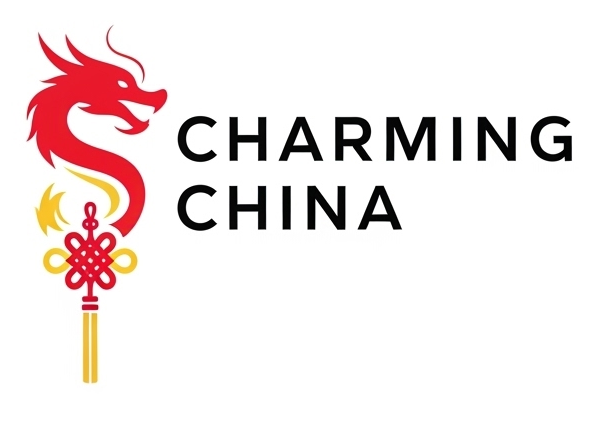Da Hong Pao Tea Guide: Flavor, Benefits, and Brewing Tips
Few teas carry as much prestige as Da Hong Pao (大红袍, Big Red Robe). Grown in the Wuyi Mountains of Fujian, China, this legendary oolong is often called the “King of Teas” for its rarity, depth of flavor, and centuries-old reputation. With its rich mineral taste, floral aroma, and smooth lingering aftertaste, Da Hong Pao has captured the hearts of emperors, monks, and tea enthusiasts worldwide.
Origins & History
- Legend: According to folklore, an emperor’s mother was cured of illness after drinking Da Hong Pao. In gratitude, he sent red robes to cover the tea bushes — hence the name “Big Red Robe.”
- Original bushes: Only a few mother trees exist in Wuyi Mountain, some over 350 years old. Today, they are considered national treasures and no longer harvested.
- Heritage: Modern Da Hong Pao is made from cuttings or blended cultivars that inherit the essence of the original bushes.
Appearance & Flavor Profile
Appearance: Long, twisted, dark brown leaves with a glossy sheen.
Flavor profile:
- Aroma: Roasted, floral, and fruity, with notes of orchid and caramel.
- Taste: Bold, layered, and complex — a balance of floral sweetness, roasted nuttiness, and mineral-rich depth (known as “Yan Yun” 岩韵, the Rock Rhyme).
- Liquor: Amber to reddish-brown, smooth and lingering.
Its “Rock Tea” (岩茶) character comes from growing in Wuyi’s rocky cliffs, where mineral-rich soil enhances flavor.
Health Benefits of Da Hong Pao
Like other premium oolongs, Da Hong Pao offers a mix of green tea freshness and black tea richness, making it both healthy and energizing:
- Boosts metabolism → aids digestion and weight management
- Supports heart health → reduces cholesterol and improves circulation
- Antioxidant-rich → slows aging and strengthens immunity
- Gentle energy boost → contains moderate caffeine
- Promotes relaxation → amino acids like L-theanine help calm the mind
How to Brew Da Hong Pao
Gongfu Style (Traditional)
- Tea-to-water: 7g per 100ml gaiwan or teapot
- Water temperature: 95–100°C (203–212°F)
- Steeping time: 10–20 seconds, increase with each infusion
- Can be infused 8–10 times, revealing evolving layers of flavor
Western Style
- Tea-to-water: 4g (1 tsp) per 250ml cup
- Water temperature: 95°C (203°F)
- Steeping time: 2–3 minutes
Pro Tip: Da Hong Pao performs best in clay or porcelain teaware that retains heat.
Da Hong Pao vs Tieguanyin (Iron Goddess of Mercy)
Both are famous Chinese oolongs, but their profiles differ:
- Da Hong Pao → Bold, roasted, mineral-rich, complex, long finish
- Tieguanyin → Floral, creamy, lighter and fresher, orchid-like aroma
- Origin → Da Hong Pao from Wuyi Mountain (Fujian), Tieguanyin from Anxi (Fujian)
If you love deep, roasted teas, choose Da Hong Pao. For floral and delicate oolongs, go for Tieguanyin.
Price & Buying Tips
- Authentic Da Hong Pao from Wuyi Mountain is expensive, especially rare single-bush varieties.
- Prices range from $20–50 per 50g for blended types to hundreds or even thousands for high-grade single-origin tea.
- Look for:
- Long, dark, twisted leaves with a rich aroma
- Clear amber liquor
- A lingering mineral sweetness (Yan Yun)
Da Hong Pao (Big Red Robe) is more than just a tea — it is a living legend. With its centuries-old history, mineral-rich flavor, and health benefits, it represents the essence of Wuyi Rock Tea culture.
FAQ
1. Why is Da Hong Pao so expensive?
Because of its rarity, labor-intensive production, and prestige. Tea from original mother bushes is priceless.
2. Does Da Hong Pao have caffeine?
Yes, but less than coffee. It provides steady energy without jitters.
3. Can I re-steep Da Hong Pao?
Yes — high-quality Da Hong Pao can be brewed 8–10 times, each revealing new layers.
4. What does “Yan Yun” mean in Da Hong Pao?
It means “Rock Rhyme,” a unique mineral-rich taste only found in Wuyi Mountain teas.
5. Is Da Hong Pao good for beginners?
Absolutely! Its bold yet balanced flavor makes it a great introduction to oolong teas.
